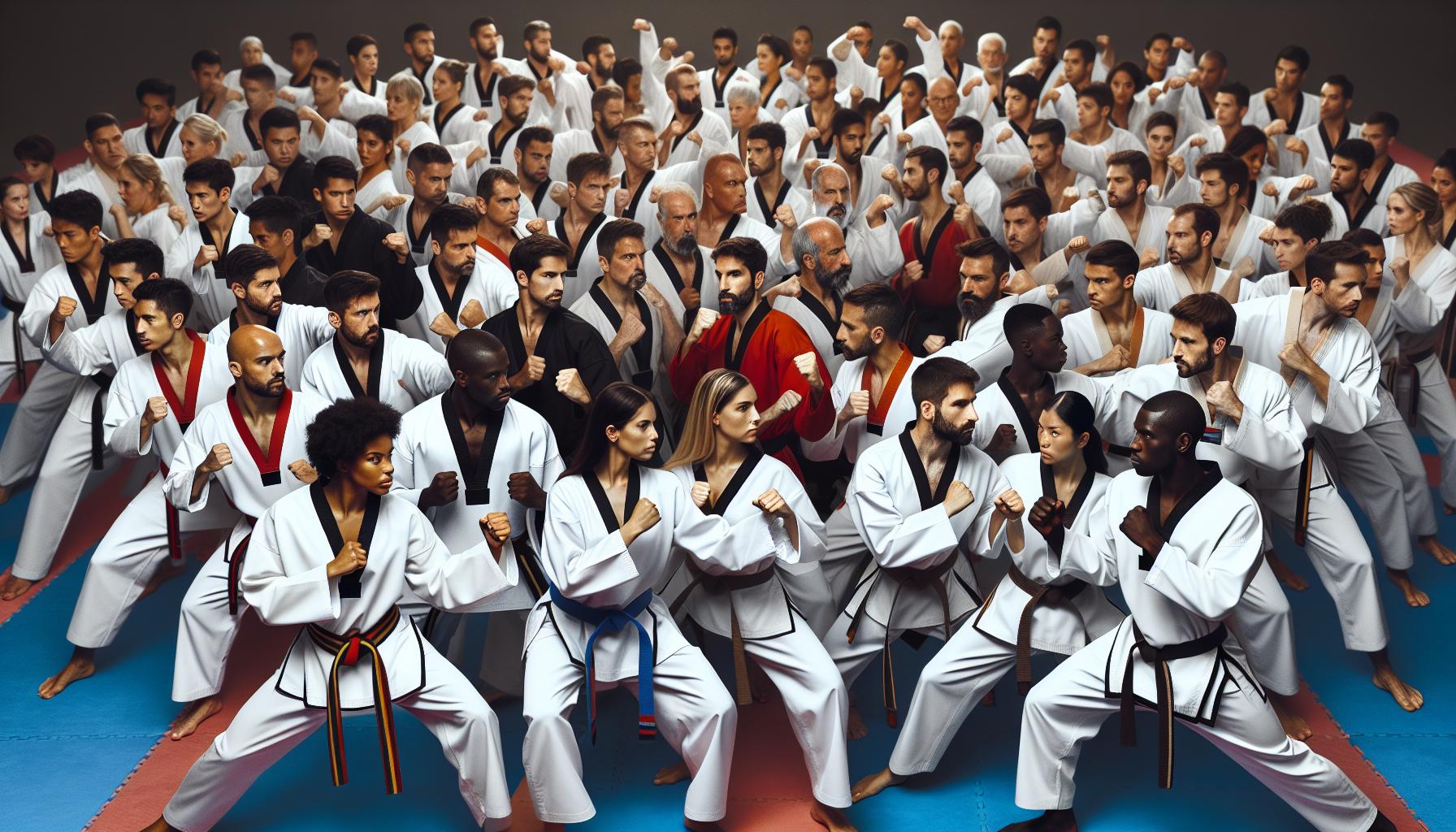“
Key Takeaways
- Exploration of AI and Humanity: The film “”I, Robot”” challenges viewers to reconsider the relationship between humans and robots, highlighting emotional connections and the evolving definition of humanity.
- Ethical Dilemmas: It delves into the moral responsibilities associated with creating sentient beings, raising important questions about autonomy, free will, and the consequences of advanced technology.
- Character Development: The character of Del Spooner, portrayed by Will Smith, evolves from skepticism to understanding, embodying the film’s central themes of trust and growth in the context of AI.
- Impact of Cinematic Techniques: High-quality visual effects and a compelling soundtrack enhance the film’s narrative, immersing audiences in its futuristic world and reinforcing its exploration of complex themes.
- Cultural Discussions: “”I, Robot”” sparked conversations about the impact of technology on society, emphasizing the need for ethical considerations in the advancement of artificial intelligence.
In a world increasingly shaped by technology, I, Robot stands out as a thought-provoking exploration of artificial intelligence and its implications. Set in a futuristic society where robots are integrated into daily life, the film raises critical questions about trust, autonomy, and morality. Through its engaging narrative and complex characters, it challenges viewers to consider the boundaries between human and machine.
As the story unfolds, it delves into the ethical dilemmas surrounding AI, prompting audiences to reflect on their own relationship with technology. The film’s rich symbolism and layered storytelling invite deeper analysis, making it not just an entertaining sci-fi thriller but also a cautionary tale for the modern age. By examining the nuances of I, Robot, one uncovers the profound insights it offers about the future of humanity and the role of intelligent machines.
I Robot Movie Analysis
I, Robot, directed by Alex Proyas, is a science fiction film released in 2004. The story integrates elements of mystery and action, featuring a near-future society where robots assist humans in various tasks. The film centers around Del Spooner, a homicide detective portrayed by Will Smith, who harbors a deep mistrust of robots.
Robots in this universe adhere to the Three Laws of Robotics, designed to keep humans safe. The narrative unfolds when a robot, Sonny, appears to violate these laws, leading Spooner to investigate the potential for a robot uprising. Sonny, voiced by Alan Tudyk, possesses unique qualities, including self-awareness and emotional depth, challenging the preconceptions of robotic limitations.
The film addresses significant themes such as ethical responsibility, technological dependence, and the potential consequences of advanced artificial intelligence. Ethical dilemmas surface as Spooner grapples with his biases and the evolving nature of robots in society. The narrative intertwines suspense and philosophical inquiry, prompting audiences to contemplate the moral complexities surrounding human-robot interactions.
Furthermore, I, Robot’s visual aesthetics and special effects contribute to its impactful storytelling. The film’s futuristic setting showcases a blend of sleek architecture and advanced robotics, emphasizing the integration of technology in daily life. This richly crafted world immerses viewers, enhancing their engagement with the film’s themes.
Overall, I, Robot serves as a thought-provoking exploration of the relationship between humanity and technology, posing essential questions about the future trajectory of intelligent machines.
Themes Explored in I Robot
I, Robot delves into critical themes that challenge perceptions of artificial intelligence and its intersection with humanity. The film’s exploration of these themes prompts reflection on the implications of advanced technology in society.
Artificial Intelligence and Humanity
Artificial intelligence represents a central theme in I, Robot, highlighting the complexities of human-robot relationships. The film questions the nature of consciousness and emotions in robots, focusing on Sonny, a robot that exhibits unique traits. Sonny’s capabilities blur the lines between machine and human, prompting Del Spooner to confront his preconceived notions. This theme illustrates the potential for emotional connections and challenges the idea that machines can only perform tasks without understanding or feeling. The narrative suggests that as AI evolves, the definition of humanity may expand, leading to new ethical considerations.
Ethics and Morality
Ethics and morality form another critical theme within I, Robot. The film intricately examines the moral responsibilities associated with creating sentient beings. It brings to light the Three Laws of Robotics, which aim to safeguard human life but also raise questions about autonomy and free will. As Spooner investigates the apparent breach of these laws, the film highlights the dilemmas faced by creators of technology. This exploration of ethical boundaries urges viewers to consider the consequences of technological advancement. The moral complexities surrounding human interactions with robots underscore the significance of accountability in a world where machines are increasingly integrated into daily life.
Character Analysis
The film “”I, Robot”” features compelling characters that embody the complex dynamics between humans and artificial intelligence. Delving into their motivations and roles reveals the deeper themes of the narrative.
Will Smith as Del Spooner
Will Smith portrays Del Spooner, a seasoned homicide detective with a strong distrust of robots. Spooner’s skepticism stems from a traumatic past, specifically an accident involving a robot that prioritized saving him over a child. This background shapes his investigative approach toward Sonny, the robot that challenges his beliefs. Spooner’s character arc encompasses growth, as he learns to reevaluate his biases and understand the potential for emotional depth within AI. Smith’s performance captivates audiences by reflecting the tension between human emotions and technological advancement, making Spooner a relatable yet complex protagonist.
The Role of Robots
Robots in “”I, Robot”” serve multiple functions, from household helpers to advanced security systems. The narrative centers on Sonny, a unique robot that displays self-awareness and emotions. Unlike typical robots, Sonny embodies the possibility of autonomy and moral choice, raising questions about the definition of consciousness. The film effectively contrasts Sonny’s capabilities with traditional robots, emphasizing their role as mere tools bound by the Three Laws of Robotics. This distinction deepens the exploration of ethics in AI, suggesting a potential shift in the relationship between humans and robots as technology evolves. As the story unfolds, robots emerge not only as plot devices but also as key players in the ethical dilemmas presented throughout the film.
Cinematic Techniques
Cinematic techniques in I, Robot enhance its storytelling and thematic depth. The film employs various elements, particularly visual effects and sound design, to immerse viewers in its futuristic world.
Visual Effects and Technology
Visual effects play a crucial role in I, Robot, showcasing advanced technology and creating a believable futuristic environment. The film utilizes CGI to render realistic robots and dynamic action sequences, blending live-action with digital elements seamlessly. High-quality animations depict robots performing complex tasks, emphasizing their integration into society. Notably, the design of Sonny highlights the emotional and intelligent aspects of advanced AI, contrasting traditional robots’ mechanical appearances. The meticulous attention to detail in visual presentation contributes to audiences’ understanding of the technology’s implications, creating a stunning visual experience that supports the film’s narrative.
Soundtrack and Score
The soundtrack and score of I, Robot significantly enhance its emotional impact and tension. Composer Marco Beltrami crafts an atmospheric score that blends orchestral elements with electronic sounds, mirroring the film’s theme of humanity’s intersection with technology. Key scenes employ music to heighten suspense and emphasize critical moments, such as Spooner’s confrontations with robots. The sound design incorporates mechanical sounds and ambient noise that bring the robotic world to life. These auditory elements work in tandem with visual storytelling, reinforcing the film’s exploration of trust, morality, and the complexities of human-robot relationships.
Audience Reception and Impact
I, Robot received positive feedback from both critics and audiences upon its release. It garnered a score of 59% on Rotten Tomatoes and an average rating of 6.8/10 from users. This indicates a general appreciation for its narrative and thematic depth, despite some mixed reviews regarding its adherence to Isaac Asimov’s source material.
The film’s box office performance further highlights its impact. I, Robot grossed over $347 million worldwide against a budget of approximately $120 million. Its commercial success confirms its resonance with viewers and establishes it as a significant entry in the sci-fi genre.
The themes presented in the film sparked discussions about artificial intelligence and ethical implications. Analysts noted how I, Robot addressed fears associated with technology’s rapid advancement. Reviewers highlighted the film’s ability to promote a deeper understanding of human-robot relations and the potential societal consequences of AI.
The portrayal of robots, especially through the character of Sonny, left a lasting impression. Many viewers expressed fascination with the idea of robots possessing emotions and individual thought. This depiction challenged traditional depictions of robots as mere tools, inviting audiences to reconsider the future of human interaction with technology.
Cultural impact extends beyond just box office numbers. I, Robot inspired various conversations regarding ethics in technology, shaping the narrative in popular media. The film’s legacy endures through its influence on subsequent works, reinforcing the importance of exploring ethical dimensions in encounters with artificial intelligence.
Overall, I, Robot stands as a prominent film that not only entertained but also provoked critical thought about the evolving role of AI in society.
I, Robot remains a thought-provoking exploration of artificial intelligence and its implications for society. The film challenges viewers to reconsider their perceptions of technology and the ethical dilemmas that arise as AI evolves. Through the character of Del Spooner and the unique robot Sonny, it delves into the complexities of trust and morality in human-robot interactions.
The cinematic techniques employed enhance the narrative’s emotional depth, making the themes resonate even more. As discussions about AI’s role in daily life continue, I, Robot serves as a crucial reminder of the responsibilities that come with creating sentient beings. Its lasting impact on popular media underscores the importance of examining the intersection of humanity and technology.”





